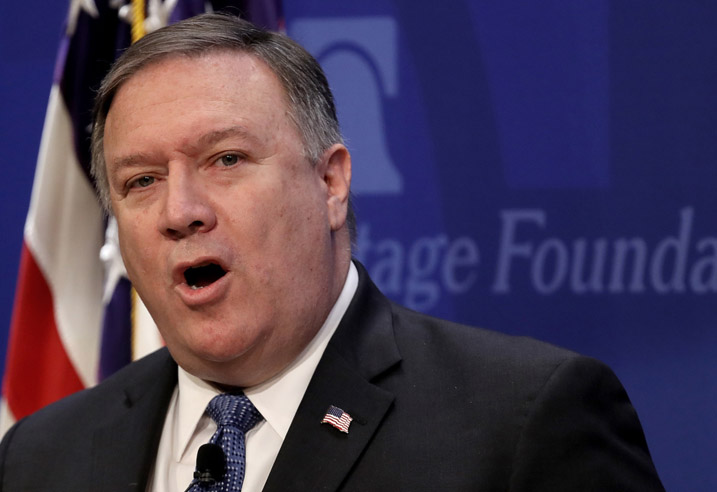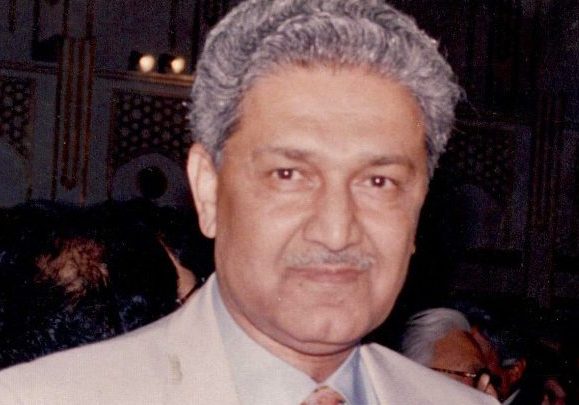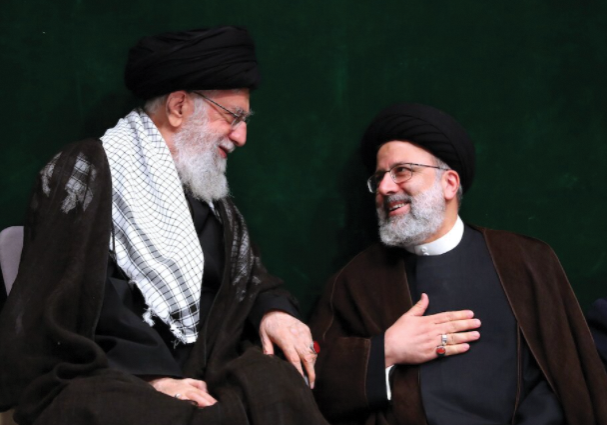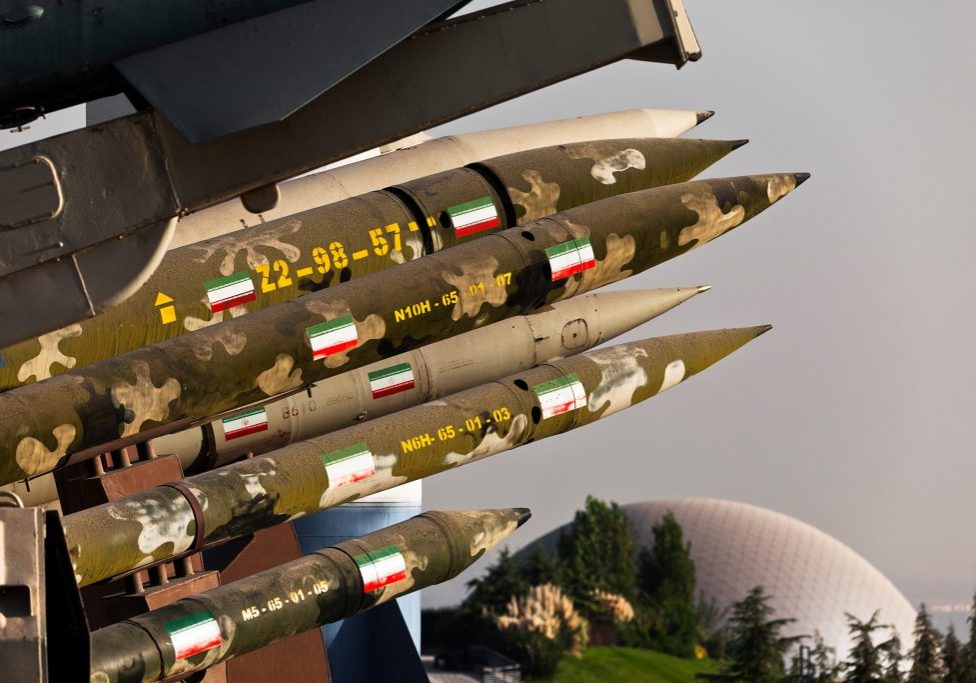Australia/Israel Review
Transcending the paradigm
May 30, 2018 | Mark Dubowitz and Ray Takeyh

A real plan to defang Iran?
Ever since US President Donald Trump withdrew the United States from the Iran nuclear deal in early May, the commentariat has been aghast at the lack of a new plan. Critics said that the Administration was all instinct and no insight, and that coercion without purpose was its only strategy. On May 21 – in one of the most important speeches on Iran ever delivered by a secretary of state – Mike Pompeo, in his first major policy address since taking the role, put that criticism to rest as he laid out an aggressive plan for defanging the theocratic regime. The United States today has a strategy, one that is expansive in its ambitions, justified in its tactics, and judicious in its assessments of Iran.
Pompeo’s most impressive intellectual breakthrough was to transcend the paradigm that has guided Washington’s Iran policy for nearly two decades. For too long, a peculiar consensus has suggested that it is possible to isolate the nuclear issue from all other areas of contention and resolve it in a satisfactory manner. The subsidiary theme embedded in this logic is that despite the bluster of Iran’s rulers, it is governed by cautious men, who, if offered sufficient incentives and soothing language, would respond with pragmatism. No one embraced this notion more ardently than former US Secretary of State John Kerry, who crafted an accord whose deficiencies are apparent to all but the most hardened partisans.
The lure of continuity and the need to be praised by polite society could have easily tied Pompeo to the Washington consensus. But instead, in his maiden speech as Secretary of State, he identified the problem: a regime that is bent on extending its imperial frontiers, developing nuclear arms, and abusing its citizens.
All of these issues are connected, as the guardians of the theocracy believe that their revolution succeeds only if it is relentlessly exported. This, after all, was said to be a revolution without borders. Nuclear arms are an indispensable instrument of Iran’s revisionist revolution. To negate Iran’s challenge, one has to have a comprehensive agenda. Pompeo outlined steps to deplete Iran’s treasury, bolster local alliances, and assist the Iranian people in their persistent quest to emancipate themselves from the clutches of the clerical tyranny.
The speech is likely to upset the arms controllers – a category of analysts who believe that all problems are mere technical disagreements and all solutions can be detected by the right physics formula. “Iran must stop uranium enrichment and never pursue plutonium reprocessing,” Pompeo said. Critics might say that this is an impractical diversion from a prudent course laid out in the Iran nuclear deal. In fact, the speech is a necessary correction of the deal’s radical departure from five decades of counterproliferation norms that have guided successive US administrations.
In 1965, as then-President Lyndon B. Johnson became alarmed about the proliferation of nuclear arms, he commissioned his deputy secretary of defence, Roswell Gilpatric, to carefully study the problem. The ensuing Gilpatric Commission’s report laid the foundation for arms control policy for decades to come. The United States was now committed to denying other nations dangerous nuclear technologies, such as the ability to enrich uranium and reprocess plutonium.
Since then, those standards have at times attenuated, as the country looked the other way when a number of its allies, such as Japan, mastered those capabilities. But the United States did not grant all of its allies such dispensations – when the Shah of Iran wanted enrichment technologies, US President Gerald Ford’s administration said no. In one of the strange ironies of history, Kerry offered the mullahs what former Secretary of State Henry Kissinger refused the Shah.
The Iran deal was indeed a landmark agreement, as it was the first time that the United States conceded an indigenous enrichment capability to an adversarial nation. It is this principle that Pompeo has now reclaimed. Iran, a country that only set out to enrich uranium for the purpose of developing a reliable nuclear arsenal, must be coerced into giving up those capabilities.
Those who discuss geopolitics and nuclear fusion often forget that the primary victims of the theocracy are Iranians. Too often, Western policymakers look at the ongoing struggle for freedom in Iran as episodes of protest that inevitably die down.
In one of the most memorable passages of the speech, Pompeo, quoting Trump, said, “We stand in total solidarity with the Iranian regime’s longest-suffering victims: its own people. The citizens of Iran have paid a heavy price for the violence and extremism of their leaders. The Iranian people long to reclaim their country’s proud history, its culture, its civilisation, its cooperation with its neighbours.”
Iran is not the sturdy, stable government that its enablers like to depict. It is a regime that has forfeited its legitimacy, is drowning in corruption, and rests its power on security organs that it fears will prove unreliable in a crunch.
The United States today has a robust Iran policy. A regime as dangerous as the Iranian one requires no less than a comprehensive strategy to counter it. This means exploiting all of its vulnerabilities, increasing the costs of its foreign adventures, draining its economy, and aiding our allies. Most importantly, the United States must find a way of connecting itself to domestic opposition that continuously haunts the mullahs.
Washington should no longer settle for an arms control agreement that paves Iran’s path to a bomb but rather a restrictive accord that ends its nuclear aspirations. The United States should not implore its allies to share the Middle East with Iran, as former President Barack Obama did, but partner with them in defeating the clerical imperialists. And most importantly, the United States should never forget that its most indispensable ally is the Iranian people.
On Monday, Pompeo laid out an impressive strategy, which is sure to face criticism in the echo chamber. All arms control agreements create their own constituency, and the Iran nuclear deal has a powerful one in the form of those in the United States for whom this was the only Obama foreign policy legacy that they could try to defend with a straight face.
Some in the bureaucracy will resist this new path, and the Administration lacks enough political appointees to police the system on behalf of the Secretary. All of these are formidable obstacles that will try to nudge and pull the Administration away from its contemplated course. The challenge for Pompeo now is to implement with precision what he has laid out with eloquence.
Mark Dubowitz is the chief executive officer of the Foundation for Defence of Democracies (FDD). Ray Takeyh is a senior fellow at the Council on Foreign Relations. Reprinted from Foreign Policy magazine. © FDD, reprinted by permission, all rights reserved.
Tags: International Security






